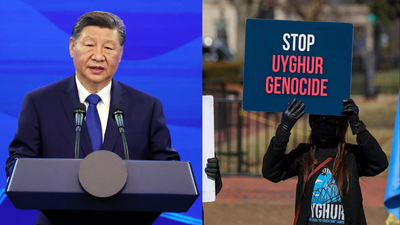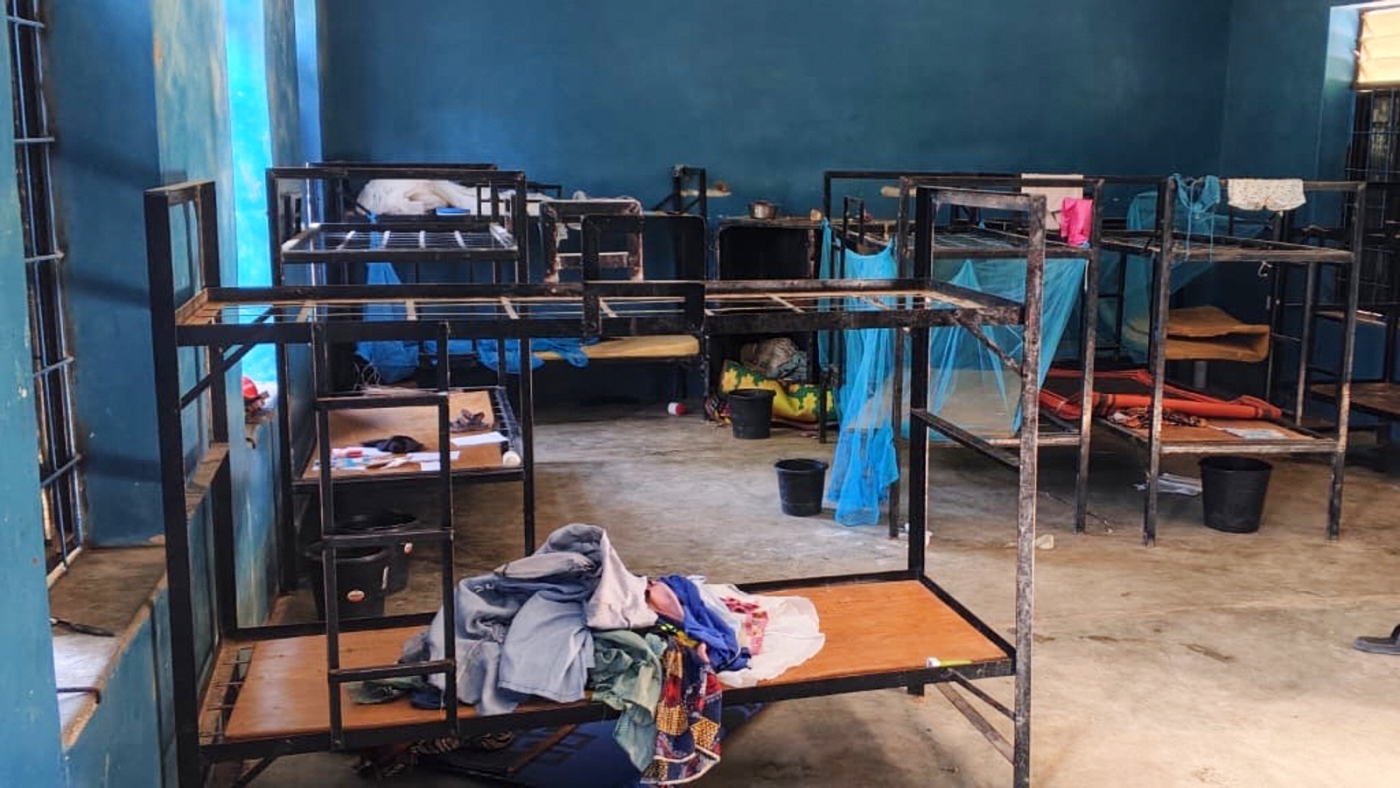
Chinese President Xi Jinping (left), Uyghur activist protesting oppression (file - agencies)
China’s influence over global academia came under sharp scrutiny this week after The Guardian revealed that Sheffield Hallam University (SHU) in the UK had suspended research into forced labour involving Uyghurs in China - a move later reversed after widespread criticism and legal pressure.The university’s decision to halt the work of Professor Laura Murphy, a leading researcher on Uyghur forced labour at the Helena Kennedy Centre for International Justice (HKC), has reignited debate on whether Beijing’s political and economic clout is undermining academic freedom worldwide.According to The Guardian, Murphy was ordered in February to stop all China-related research and her Forced Labour Lab website was taken offline.
The university also withdrew a report on Uyghur forced labour in the critical minerals supply chain and returned funding to the non-profit Global Rights Compliance (GRC), which later published the study independently in June.Murphy said she was told administrative issues were behind the halt but later discovered that “the university was explicitly trading my academic freedom for access to the Chinese student market,” calling it “really shocking.”
Sheffield Hallam has denied commercial motives, citing safety concerns for staff in China and the loss of insurance coverage due to a defamation lawsuit filed by a Chinese firm named in HKC research.Following Murphy’s legal challenge over academic freedom, the university in October lifted restrictions and apologised. However, the eight-month freeze, experts say, underscores the growing leverage Beijing exerts over institutions dependent on Chinese students.
Emails obtained by The Guardian reportedly show officials worrying about the impact of China’s retaliation - including the blocking of SHU’s websites in the country and falling enrolments.The UK government has since condemned any form of foreign interference. A spokesperson said: “Any attempt by a foreign state to intimidate, harass or harm individuals in the UK will not be tolerated, and the Government has made this clear to Beijing after learning of this case.”
Counter-terrorism police are reportedly assessing whether national security laws were breached.The controversy coincides with an upswell in global Uyghur advocacy efforts. The World Uyghur Congress (WUC) this week intensified its international campaign highlighting Beijing’s repression in Xinjiang - through art exhibitions, conferences, and human rights forums across Europe and Asia.In Munich, celebrated Kazakh Uyghur painter Ahmet Akhat held a Uyghur art and cultural exhibition, while in Istanbul, the Turkey Unity Foundation hosted an event titled “The Unheard Cries of East Turkistan”, condemning China’s alleged genocide.
In Bangkok, WUC leaders attended the International Civil Society Week 2025, engaging global partners under the theme “Reimagining Democracy, Rights, and Inclusion.
”Meanwhile, WUC vice president Zumretay Arkin warned in Germany’s Handelsblatt that China’s “Ethnic Unity Law” and expanding digital surveillance threaten Uyghur identity, urging Canada and other democracies to adopt stricter forced-labour legislation.
On November 5, Uyghur activist Rushan Abbas received the 2025 Democracy Award from the national endowment for democracy for her rights advocacy.The Guardian revelations about Sheffield Hallam surfaced the same week, amplifying concerns voiced by Uyghur groups that Beijing’s influence now extends beyond economics and diplomacy to suppressing academic inquiry itself.Murphy summed up the broader worry: “I’m unclear at this point whether the university is prepared to be as supportive as it used to be,” she said, adding that under-funded institutions “are going to be prey to these kinds of attacks.”

 1 month ago
16
1 month ago
16









 English (US) ·
English (US) ·